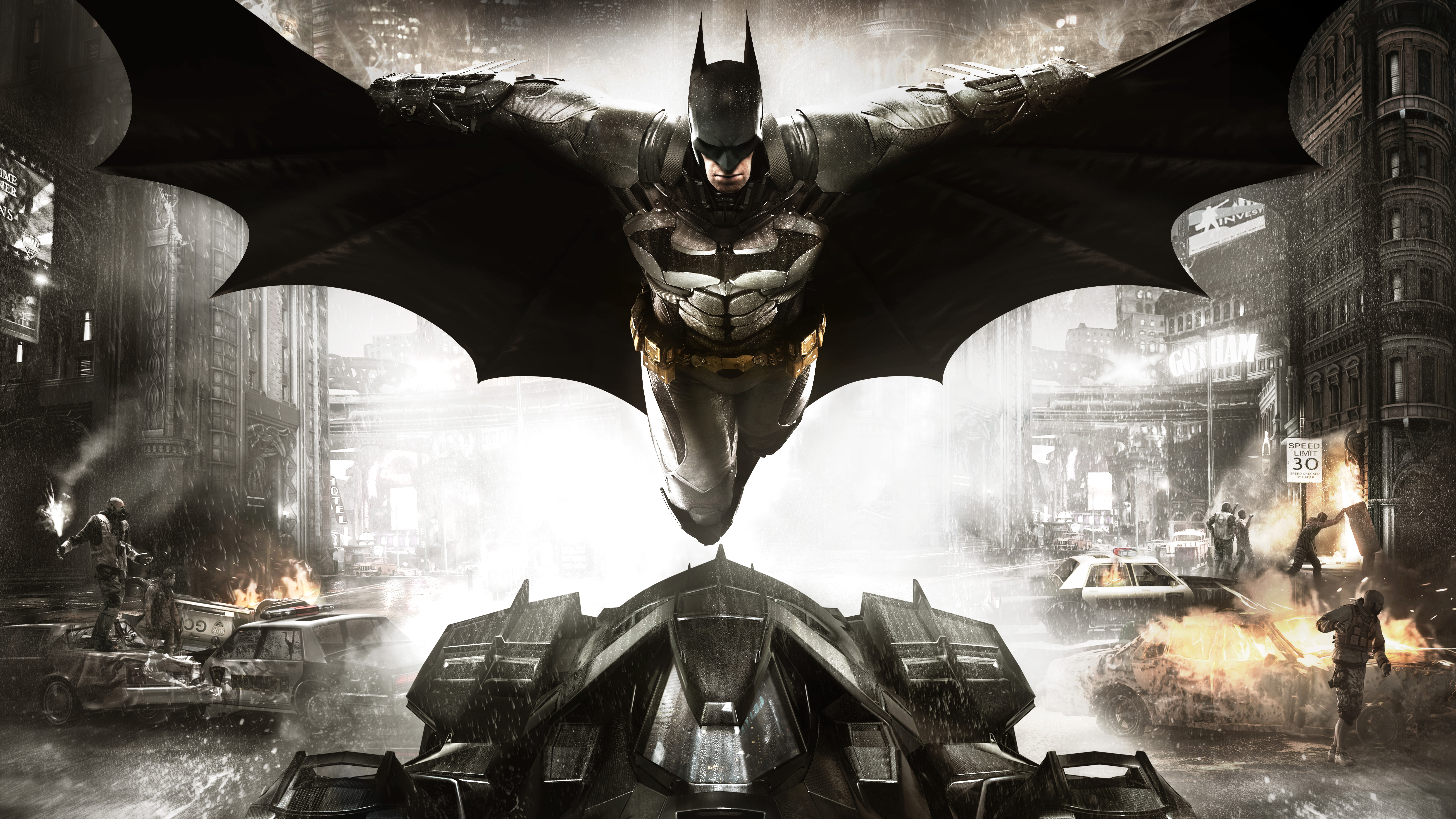CD Projekt RED Feared Batmobile Would Crush The Witcher 3

It’s difficult to imagine a world where The Witcher 3: Wild Hunt was anything but a monumental success. The 2015 open-world RPG from Polish studio CD Projekt RED redefined its genre, won hundreds of awards, and cemented its place as one of the most beloved games of all time. But in the months leading up to its launch, the team behind the fantasy epic was far from confident. In fact, they were reportedly terrified of being flattened by a Gotham City juggernaut and its iconic vehicle: the Batmobile.
In a candid look back at the game's development, it was revealed that the team at CD Projekt RED was deeply concerned about a major competitor launching that same summer: Rocksteady Studios' Batman: Arkham Knight. The anxiety reached a fever pitch when a new trailer for the Batman title showcased its signature new feature in all its glory.
A Tale of Two Titans: The 2015 Showdown
To understand the studio's apprehension, one must revisit the gaming landscape of 2015. The Witcher 3 was a highly anticipated title, but it was also a massive gamble. It was the studio's first truly sprawling open-world game, an ambitious project from a developer that, while respected for its previous two Witcher games, had not yet reached the global titan status it enjoys today.
Scheduled for a May 2015 release, Geralt of Rivia’s adventure was set to go head-to-head with the caped crusader. Batman: Arkham Knight, slated for a June 2015 launch, was the epic conclusion to Rocksteady's critically acclaimed Arkham trilogy. It was backed by the publishing might of Warner Bros. Interactive Entertainment and featured one of the most recognizable characters on the planet. The hype was immense, and it was centered on one game-changing mechanic.
"They're Just Gonna Roll Over Us": The Batmobile Fear
For the first time in the series, players would be able to drive the Batmobile, seamlessly transitioning from on-foot combat and gliding to high-speed pursuit and vehicular warfare. According to Philipp Weber, who was a quest designer at the time and is now CDPR's acting narrative director, the marketing for this feature sent a wave of panic through the Polish studio.
Weber recounted how the team gathered to watch a new trailer for Arkham Knight that heavily featured the Batmobile in action. Seeing the tank-like vehicle tear through the streets of Gotham, firing missiles and transforming into a combat machine, was a gut punch for the developers of a game whose primary mode of transport was a horse named Roach.
The feeling in the room was palpable. A colleague reportedly turned to the team and voiced the collective fear: "They have a car... They're just gonna roll over us."
This single feature epitomized the team's anxiety. The Batmobile was flashy, marketable, and represented a kind of explosive, high-octane action that The Witcher 3, with its focus on narrative, exploration, and swordplay, simply couldn't offer. CDPR feared that their deep, story-driven RPG would look quaint and slow next to the summer's biggest action blockbuster.
An Underdog Story from Poland
At the time, CD Projekt RED was still perceived as a passionate but smaller European studio punching above its weight. They were up against an established franchise from a decorated British developer and a multi-billion dollar IP. Their confidence was in their world-building, complex characters, and branching narratives—elements that are harder to convey in a two-minute trailer than a transforming rocket car.
The team believed in the quality of their game, but they were acutely aware that in the battle for marketing and public perception, they were the underdogs. The fear was that gamers on a budget would choose the immediate, explosive thrill of being the Batman in his high-tech machine over the slower, more methodical journey of a monster hunter on horseback.
How Fate Flipped the Script
As history now shows, CD Projekt RED’s fears were ultimately unfounded. The Witcher 3: Wild Hunt launched in May 2015 to near-universal acclaim. Critics and players lauded its breathtaking world, mature storytelling, and sheer volume of meaningful content. It became an instant commercial success and the benchmark against which all future open-world RPGs would be measured.
In a dramatic twist of fate, the launch of their biggest competitor went very differently. While Batman: Arkham Knight was well-received on consoles, its PC version arrived in a disastrous state. Plagued by severe stuttering, frame rate issues, and a host of game-breaking bugs, the port was so poor that Warner Bros. took the unprecedented step of suspending sales and pulling it from digital storefronts for months of repair work.
The game that CDPR feared would "roll over them" had stumbled out of the gate on a key platform, while The Witcher 3 was commanding the conversation and earning perfect scores.
The Enduring Legacy of the Wild Hunt
The story of CDPR's pre-launch anxiety serves as a fascinating reminder that even the most successful projects are often born from uncertainty. The team's fear of the Batmobile highlights the immense pressure of competing in the AAA gaming space.
Ultimately, The Witcher 3 didn't need a transforming car to win over the world. Its success was built on a foundation of player choice, unparalleled world design, and a deep respect for its audience. It proved that a compelling narrative and a world that feels truly alive can be more powerful than any single, flashy mechanic. The game went on to sell tens of millions of copies and is celebrated to this day, a testament to the idea that substance, story, and soul can overcome any fear—even the fear of the Batmobile.